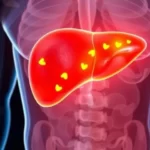Hysteria, historically considered a neurotic disorder, involves a complex range of physical and psychological symptoms. Most frequently arising in adolescence or early adulthood, it predominantly affects women and is closely linked with emotional trauma, intense stress, or unresolved psychological conflict.
While the term “hysteria” is rarely used in modern clinical psychiatry, its manifestations, now often categorized under conversion disorder or dissociative disorders, continue to challenge conventional treatment methods.
Classical Symptoms of Hysterical Neurosis
Hysterical neurosis is known for its unpredictable and multifaceted nature, often making diagnosis a clinical challenge. These symptoms are not due to structural or physiological abnormalities but arise from emotional conflicts and psychological distress manifesting through the body.
Hysterical neurosis presents a diverse array of symptoms:
- Motor disturbances: Paralysis, weakness, spasms, and abnormal movements.
- Sensory issues: Altered sensation, including pain, temperature, and touch abnormalities.
- Characteristic patterns: “Glove and stocking” sensory loss, or hemianesthesia extending exactly to the body’s midline.
- Special senses: Blindness, deafness, and aphonia without organic cause.
These symptoms often mimic those of serious illnesses, yet they stem from psychological dissociation rather than physical pathology.
Dissociative States and Hysteria
Hysteria often involves a breakdown in the standard integration of consciousness, identity, memory, and perception. These dissociative states reflect the psyche’s attempt to shield itself from overwhelming emotional experiences. They can dramatically affect a person’s behavior, sense of self, and awareness of reality.
Dissociation plays a key role in hysteria:
- Amnesia: Temporary loss of memory, either retrograde (past events) or anterograde (new information).
- Somnambulism: A trance-like state where the patient may act out vivid emotional scenarios.
- Hallucinations: Both auditory and visual, typically with emotional significance.
These states are the mind’s coping mechanism against unbearable emotional stress.
Homeopathy for Hysteria: A Holistic Approach
Homeopathy treats hysteria by addressing both emotional and physical symptoms. It emphasizes individualized treatment, recognizing that each patient’s hysterical presentation is unique.
Unlike suppressive medications, homeopathic remedies aim to stimulate the body’s self-healing response through minimal doses that match the patient’s specific symptoms.
Ignatia – The Classic Hysterical Remedy
Among all homeopathic medicines, Ignatia amara is considered the cornerstone remedy for hysteria, especially when emotional grief is the root cause. It is particularly effective for sensitive, introspective individuals who suppress their feelings and struggle silently with internal conflicts. The remedy works on both the emotional and physical expressions of distress, often providing profound relief.
Ignatia amara is renowned for its ability to address emotional turmoil:
- Frequent mood swings, crying one moment, laughing the next>
- Sensitivity to external stimuli and contradictions
- “Globus hystericus” is a sensation of a lump in the throat
- Headaches relieved by stooping or urination
- Convulsions resembling epilepsy, especially after grief
Ignatia is particularly suited for those suffering prolonged grief and emotional suppression.
Asafoetida – Relief for Globus Sensation & Nervous Flatulence
Asafoetida stands out in homeopathy for addressing hysteria rooted in gastrointestinal and respiratory tension. It is advantageous when nervous symptoms follow the suppression of habitual bodily discharges, such as menstrual flow or chronic digestive activity. The remedy targets both mental agitation and physical discomfort, making it ideal for cases where emotions express themselves through the gut and throat.
A prime remedy for hysterical conditions linked with suppressed discharges and gastrointestinal disturbances:
- Sensation of a rising ball from the stomach to the throat
- Nervous flatulence causing pressure and breathing issues
- Spasmodic hiccups, restlessness, and anxiety
- Excellent sensitivity and muscle twitching
Ideal for patients with hysterical colic and persistent swallowing to suppress the rising lump.
Moschus – Managing Fainting Spells and Sudden Collapse
Moschus is a critical remedy for hysterical episodes marked by dramatic fainting, sudden collapses, and heightened emotional expression. It is particularly suited for individuals who experience suffocative attacks or lose consciousness under stress, often with theatrical or exaggerated symptoms. This remedy addresses both the mental state and the physical reactions associated with emotional overload.
When fainting dominates the hysterical episode, Moschus stands out:
- Sudden loss of consciousness, gasping, and a blue face
- Loud eructations, spastic attacks, and nervous gas
- Scolding behavior or loud, uncontrollable laughter
- Symptoms relieved by pressure release or belching
It’s especially beneficial during acute paroxysms with overwhelming emotional expression.
Tarentula Hispana – Restlessness and Hystero-epilepsy
Tarentula Hispana, derived from the Spanish spider, is one of homeopathy’s most dynamic remedies for nervous disorders with excessive motor activity and dramatic behaviors. It is beneficial when the patient displays restlessness, exaggerated emotional expression, and sudden bursts of uncontrollable behavior. This remedy is ideal for cases where the nervous system seems overstimulated and constantly on edge.
This spider remedy addresses exaggerated, dramatic, hysterical presentations:
- Uncontrollable laughter or dancing during fits
- Trembling, fidgety limbs, sensitive ovaries
- Feigned attacks mimicking epilepsy
- Improvement with music or movement
Recommended in cases where energy is overly scattered and theatrically expressed.
Platinum – For Hysterical Arrogance and Genital Sensitivity
Platinum metallicum is a powerful remedy for a unique subtype of hysteria marked by intense pride, emotional isolation, and sexual hypersensitivity. The individual often displays aloofness, exaggerated self-importance, and a tendency to look down on others, all while battling deep inner melancholy. It is particularly effective in patients whose emotional imbalances manifest through heightened genital sensitivity or erratic sexual behavior.
Distinct for mental symptoms of superiority and disdain:
- Haughty behavior, superiority complex
- Over-sensitivity in the genital organs
- Loud laughing fits that border on mania
- Emotional detachment and depression
Useful in sexually driven hysteria and intense emotional detachment.
Valeriana – Nervous Agitation with Mood Swings
Valeriana officinalis is an effective homeopathic remedy for hysteria marked by excessive nervous energy, restlessness, and alternating emotional states. It is especially beneficial for individuals who oscillate between hyperactivity and exhaustion, overreacting even to mild stimuli. This remedy brings calm to the agitated mind and body, particularly when symptoms are worsened by overexertion or emotional overload.
Valeriana covers a spectrum of hysterical behaviors:
- Constant movement, talking, and laughing
- Headache and fainting with the slightest pain
- Sensation of heat rising to the throat
- Rapid mood swings and mental overstimulation
Its action suits those overly reactive to minor stimuli and exhausted by emotional fluctuations.
Nux Moschata – Hysterical Dryness, Sleepiness & Bloating
Nux Moschata is well-suited for hysterical individuals who present with extreme physical dryness, overwhelming drowsiness, and emotional instability. These patients often experience sudden transitions between laughter and sadness, with mental fogginess that leads to fainting or confusion. The remedy is particularly effective for nervous states accompanied by gastrointestinal bloating and sleepiness after meals.
Excellent for patients who exhibit:
- Extreme dryness of the mouth and skin
- Sudden, severe drowsiness
- Flatulence and bloating after meals
- Sudden emotional shifts, particularly from joy to grief
It also relieves hysterical fainting, especially where mental clarity is quickly lost.
Gelsemium – Weakness, Numbness, and Fear
Gelsemium sempervirens is particularly effective in hysterical cases where fear, weakness, and mental dullness dominate. The remedy suits patients who feel emotionally fragile and physically exhausted, often experiencing tremors, numbness, or difficulty speaking clearly. It is ideal for those overwhelmed by anticipation, dread, or chronic anxiety that results in both mental and motor inhibition.
Anxiety with physical exhaustion is Gelsemium’s keynote:
- Numbness of limbs, trembling, and mental fog
- Difficulty swallowing with a lump in the throat
- Copious pale urine during or after attacks
- Useful in onanism-related hysteria in both sexes
Ideal for emotionally drained, timid, and withdrawn individuals.
Pulsatilla – Tearfulness, Menses Issues & Solace-Seeking
Pulsatilla nigricans is a key remedy for emotional hypersensitivity and hormonal imbalances, especially in young women. It suits individuals who are gentle, clingy, and prone to weeping in the presence of others, seeking reassurance and comfort. This remedy is particularly beneficial when physical symptoms like menstrual irregularities are coupled with a strong emotional need for affection.
Pulsatilla shines when the patient:
- Seeks attention, sympathy, and emotional support
- Weeps openly and feels worse in closed rooms
- Suffers from irregular or suppressed menses
- Feels better in fresh air and company
It works exceptionally well in teenage girls or women with shifting moods and hormonal imbalances.
Lesser-Known But Effective Remedies for Hysteria
While the primary remedies are well-known for treating classical hysterical symptoms, several lesser-used homeopathic medicines can also provide profound relief, especially in nuanced or complex cases. These remedies often work best when chosen based on specific emotional triggers, underlying causes, or subtle symptom patterns. They are beneficial when major remedies don’t fully match the patient’s constitution.
Belladonna
- Boisterous behavior with a flushed face and dilated pupils
- Spasmodic excitement with hallucinations or a wild look
This remedy is best suited for acute, high-energy hysterical states with sudden onset and intensity, especially when accompanied by a congested face and dilated pupils.
Kali Phosphoricum
- Mental and emotional exhaustion from overstimulation
- Sudden attacks after emotional shock
Perfect for highly sensitive individuals whose nerves are frayed from stress, trauma, or overwork, and often used as a nerve tonic for burnout-induced hysteria.
Cannabis Indica
- Mental confusion, vivid fantasies, depersonalization
Useful in hysteria where there’s detachment from reality, excessive imagination, or panic linked with altered perceptions.
Sticta
- Hysterical reactions following blood loss or weakness
Indicated when hysteria follows exhaustion or depletion, such as after childbirth, surgery, or excessive bleeding. Restlessness and scattered thoughts are common signs.
Constitutional Treatment: Why It’s Crucial in Hysteria
Treating hysteria effectively goes beyond addressing surface-level symptoms; it requires a deep, individualized approach, which is the foundation of constitutional homeopathy. Unlike conventional medicine, homeopathy views each patient as a unique whole, with emotional, mental, and physical components all contributing to disease expression. This method seeks not just relief, but true healing by targeting the root imbalance.
In homeopathy, constitutional treatment is the cornerstone of managing chronic and complex cases like hysteria. Instead of focusing on superficial symptoms, the practitioner evaluates:
- Mental-emotional disposition
- Past traumas and grief history
- Family medical background
- Physical constitution and response to stress
This approach often involves a single, well-chosen remedy given over a longer duration to address deep-rooted patterns and restore lasting harmony.
Lifestyle and Emotional Support for Hysterical Patients
| Support Strategy | How It Helps |
| Cognitive therapy | Reframes emotional triggers and teaches coping mechanisms |
| Meditation & Pranayama | Calms the nervous system and improves self-regulation |
| Balanced diet | Stabilizes blood sugar and reduces fatigue-linked symptoms |
| Physical activity | Releases endorphins, helping reduce anxiety and tension |
| Art or music therapy | Offers emotional expression and calming sensory input |
Conclusion
Hysteria, with its broad spectrum of physical and emotional symptoms, can significantly impact quality of life. Conventional treatments often suppress symptoms, while homeopathy provides a holistic, individualized, and lasting solution. From Ignatia for grief-stricken sufferers to Moschus for fainting fits, and Tarentula for restlessness, each remedy targets specific facets of hysteria.
Combining homeopathic support with emotional care and lifestyle change creates a powerful pathway to recovery and peace of mind. Always seek professional guidance to begin your journey towards holistic healing.
FAQs
1. Can homeopathy treat hysteria permanently?
Yes, when the correct constitutional remedy is selected, homeopathy addresses the root cause of hysterical symptoms, offering lasting relief.
2. Is homeopathy safe for children or adolescents with hysteria?
Absolutely. Homeopathic remedies are gentle and non-toxic, making them suitable for individuals of all ages, including sensitive groups.
3. How long does it take for homeopathic treatment to show results?
Acute symptoms may improve in days, while chronic hysteria can take weeks to months, depending on emotional depth and patient constitution.
4. Can I take homeopathic remedies without a prescription?
No. Hysteria requires strict individualization, and self-medication can be ineffective or counterproductive. Always consult a qualified homeopath.
5. Are there dietary restrictions while on homeopathic treatment?
Yes. Patients are usually advised to avoid intense flavors like coffee, mint, or garlic around dosage time to prevent interference.
6. What’s the best homeopathic remedy for hysteria due to heartbreak or grief?
Ignatia is the go-to remedy for hysteria caused by grief, loss, or profound emotional suppression.











